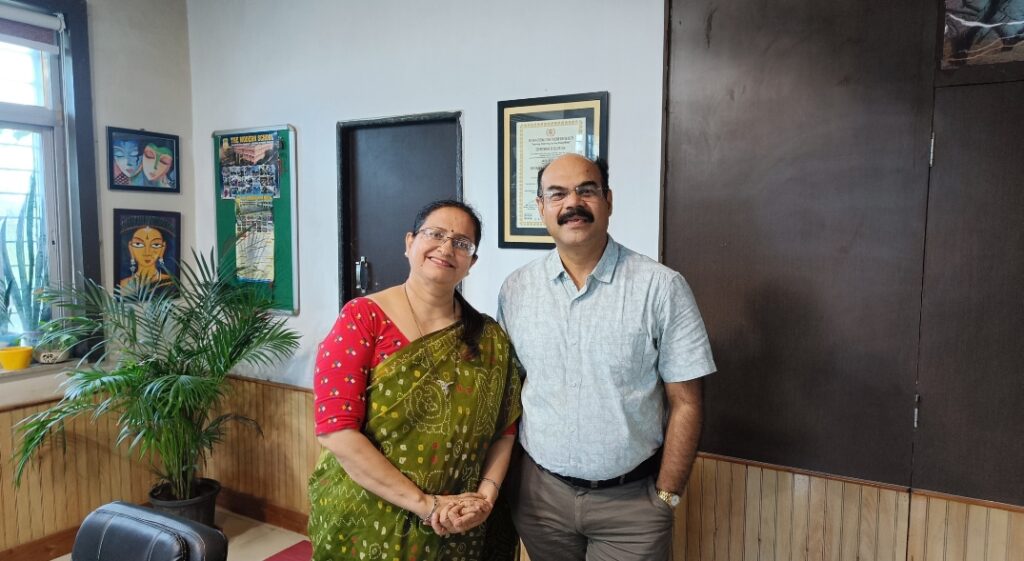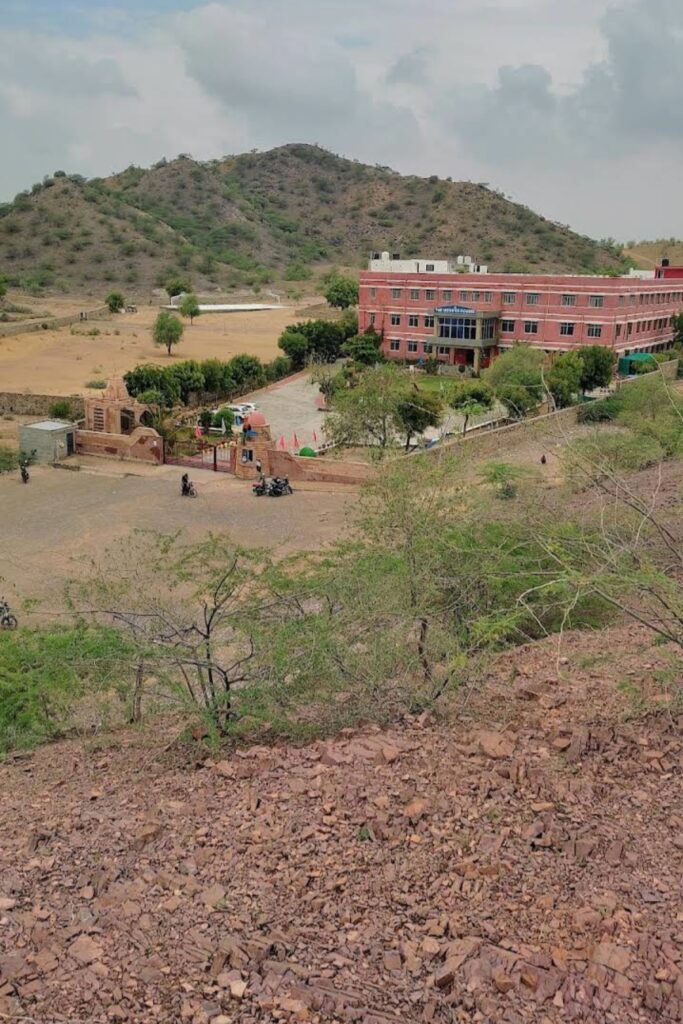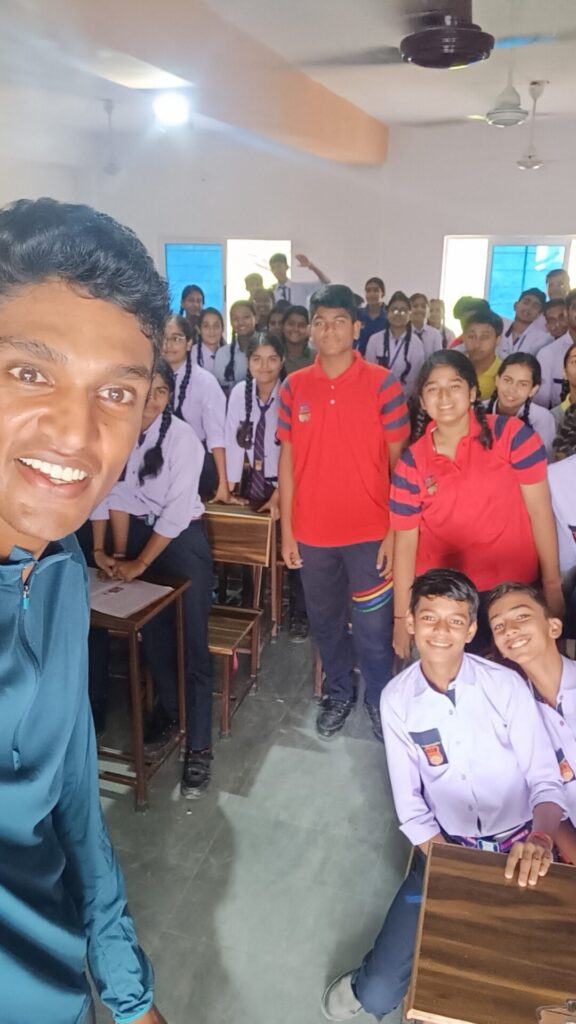Desert to dreams: how a school is transforming the life of children in Barmer, Rajasthan
In a world where education often takes the shape of a business, focusing on profit rather than purpose, finding schools genuinely dedicated to nurturing students’ dreams can be a challenge. Many educational institutions in India conform to established norms set by government bodies or aim for prestige, often overlooking the essence of true education. Education is more than a mere transfer of knowledge; it should empower young minds to comprehend life, tap into their human potential, and contribute to the world through their unique perspectives and innate talents.
During my extensive cycling journey across India, dedicated to highlighting the significance of education in broadening young minds, I encountered various schools. However, none stood out quite like Modern School, situated in the rural landscapes of Barmer, Rajasthan. Nestled in a desert region where access to quality education is limited, this institution has defied odds, surpassing the standards of many prestigious schools in more urbanized areas.
Under the stewardship of Dr. Mukesh Pachauri and Ms. Navneet Pachauri, Modern School was conceived with a clear vision: to impart knowledge with the intent of nurturing thoughtful individuals, not merely preparing a workforce for society. Establishing the school from the ground up in 2007, both Mr. and Mrs. Pachauri expressed their desire to celebrate childhood and education. In my brief yet insightful interaction with them, I gained profound understanding into the minds of individuals committed to selfless service and the innovative approaches they bring to the educational realm.
Link: https://www.themodernschoolbarmer.com/

Where the idea gets brewed
The celestial arrangement favored a fateful encounter between Mr. Mukesh and Ms. Navneet during their time at Jawaharlal Nehru University (JNU), Delhi, where their paths converged due to a shared passion for theatre during their graduation. Mr. Mukesh pursued a degree in English, while Ms. Navneet chose the challenging path of studying Chinese. Despite their differing academic pursuits, both were deeply passionate about education and service, finding common ground even in the prestigious halls of one of India’s top educational institutions, known for producing the country’s eminent bureaucrats.
While Mr. Mukesh furthered his academic journey with a master’s in Hindi and pursued a Ph.D. program in Media and Contemporary Hindi literature at JNU, Ms. Navneet embarked on a postgraduate diploma in public relations. Their educational trajectories continued to diverge, with Mr. Mukesh urging Navneet to consider a Ph.D. for potential career alignment, but her determination to immerse herself in the field of education and service led her to become a pre-primary school teacher at the esteemed Salwan Public School in Gurgaon, Haryana.
Events that led them to a desert stricken land
A chain of unforeseen circumstances unraveled, ultimately guiding both Mr. and Mrs. Pachauri to the city of Barmer in Rajasthan. Mukesh decided to withdraw from his Ph.D. program when an unexpected opportunity arose: a chance to work as the Editorial Chief for “Parakh,” the pioneering news and current affairs magazine alongside the renowned journalist of our nation, Vinod Dua. However, fate had a different plan, and a severe accident resulted in multiple fractures in Mukesh’s left limb, confining him to bed for a year and a half. This incident led his family to strongly suggest that he secure a government job.
In response, Mukesh embraced a new role as an assistant professor at the Government PG College in Barmer. Following suit, Navneet relocated to Barmer and assumed the position of a school principal, aligning their paths in this unexpected journey to the less developed city of Barmer in Rajasthan.
The start
Now that Mukesh and Navneet Pachauri were settled together in one place, the time had come to bring their dreams to fruition. These dreams had been nurtured since their days in university. Navneet, always resilient and undeterred, embraced the idea of establishing a school in the economically challenged area of Barmer. A person who had chosen the most challenging path for her graduation, Navneet was determined to open the school in the most demanding of circumstances.
Teaming up with three other partners who shared the vision and invested in the land, Mukesh and Navneet inaugurated the school, welcoming nearly 300 students in its inaugural year. However, due to sluggish returns on investment, the three partners decided to close the school, leaving Mr. and Mrs. Pachauri back at the starting point.
Finally, in 2007, both of them, undeterred and driven by their vision, established Modern School from scratch. They procured land amidst the hills of Barmer, with a loan graciously provided by their parents. From that point forward, their journey has been a relentless pursuit of their dream, and they haven’t looked back since.

How the school functions
As I stepped into the school, I was immediately engulfed in an atmosphere brimming with creativity. Children held colorful placards, busily preparing for an upcoming play. The warmth of the reception I received, despite being a stranger, was heartening. In the classroom I visited, the students were notably more enthusiastic and engaged compared to many other places I had visited on my journey.

Visit the link for more photos that display schools creativity:
https://g.co/kgs/KwXRG5
I was astonished to learn that the school had already hosted two TED talks to date, featuring speeches by both Mr. and Mrs. Pachauri. It was truly remarkable to imagine that a school situated in such an underdeveloped area not only hosted TED talks but also an international film festival. The caliber of speakers, including India’s top cartoonist, an 88-year-old individual named Vinod Sharma, Dinesh Patel who ingeniously developed a humanoid robot from waste material capable of teaching 47 different languages, and the YouTube sensation Shobith Nirman, truly added a prestigious touch to these events.
Dr. Mukesh highlighted their continuous search for exceptional, creative teachers, encouraging them to innovate and bring forward imaginative ideas. The school has an illustrious faculty, including renowned figures like astronomer Amithabh Pandey and a dedicated psychologist counselor, among others, who are compensated well for their contributions.
Collaboratively, both faculty and students actively engage in a plethora of extracurricular activities, shaping a packed calendar year-round. The students enjoy these activities so much that some express disappointment when the school is closed on Sundays. One remarkable initiative that caught my attention was the school’s media club, embodying the motto “explore, not expose.” This resonates deeply with their belief that media should illuminate life and current affairs, steering clear of misinformation.
During the visit of Tedx speakers, the media club demonstrated remarkable professionalism, interviewing them amidst a crowd of 16 other press reporters. The school’s lively atmosphere is fostered by innovative concepts like Mother’s Day recipe sharing, theatre workshops for teachers, yoga sessions for kids, inventive debate formats, dedicated reading and study days, and numerous other extracurricular activities. This approach not only ensures a fun learning experience but also instills strong ethical values.
The impact of their holistic approach is evidenced by the diverse alumni network excelling in various domains, from employees at tech giants like Apple and Amazon, UPSC toppers, district achievers, doctors, and educators, showcasing the school’s dedication to nurturing well-rounded individuals.
Mindset of the people who selflessly work for a brighter generation forward
I was particularly impressed to learn that some of the faculty members at the school were earning competitive salaries, akin to those in major metropolitan cities, while the monthly fees for 12th-grade students remained a modest 3,000 rupees. This underscored the school’s dedication to service rather than profit. Intrigued by their sustainability model, I inquired Dr. Mukesh about it, and he simply smiled, gesturing upwards, indicating that they derived their strength from a higher purpose.
He then shared that their dream of creating a unique school had germinated 30 years ago, leading to their foundational principles: to share, care, and dare. Presently, they perceive life akin to savoring an ice cream—it’s vital to relish it while it lasts, for it will inevitably melt away. Meeting Mukesh and Navneet Pachauri was indeed a pleasure. Curious to delve deeper into their mindset, I proceeded to ask them some personal questions.
Justification
Both Mukesh and Navneet Pachauri shared that they underwent a thorough process to crystallize their vision and mission. Eventually, they distilled their vision down to a crucial objective: nurturing the leaders of tomorrow. Their foundational values centered around care, integrity, and innovation. The driving force behind establishing the school was to catalyze a revolution in education.
Validation
When asked about the source of validation for their hard work, both Mr. and Mrs. Pachauri pondered for a moment and then simultaneously responded, “If students are happy, so are we. We feel stressed when they aren’t.” They emphasized their desire for education to come with a big smile, believing that when students are content, they are on the path to discovering their destiny.
Complaints
During our entire discussion, I noticed that both Mr. and Mrs. Pachauri never once expressed any complaints. They remained unfailingly optimistic, always speaking with a smile on their faces. It astonished me to see them pursuing such a substantial dream without being deterred by obstacles. Intrigued, I asked if they had any complaints throughout their journey of building the school. They exchanged glances and simultaneously shrugged their shoulders, expressing that they had absolutely no complaints. They believed that everything comes with a purpose and emphasized the value of continual learning each day.
Materialism
When asked about their plans if they were to receive a substantial financial boost, they expressed interest in expanding the school’s facilities, particularly focusing on a sports academy. However, if the funds greatly exceeded their expectations, they envisioned venturing into the education sector on a grander scale—establishing a Gurukul system where students could reside at the school, immersing themselves fully in the educational experience.
Meeting Mr. and Mrs. Pachauri and visiting their school was truly an enriching experience. It became evident that one can aspire to dream big and work diligently to attain those dreams. As our conversation concluded, I felt a sense of lightness and humility, expressing my gratitude by shaking each of their hands. To discover more about individuals striving to make an entire city beggar-free, read this article.
I am a 31 year young PhD graduate who has decided to travel the length and breadth of India on my cycle, to document the journey of meeting a vast array of people. In my journey, I intend to understand the characteristic features of the people of this nation and categorize them based on their demographics, age, profession, gender, traditions, and cultural differences.